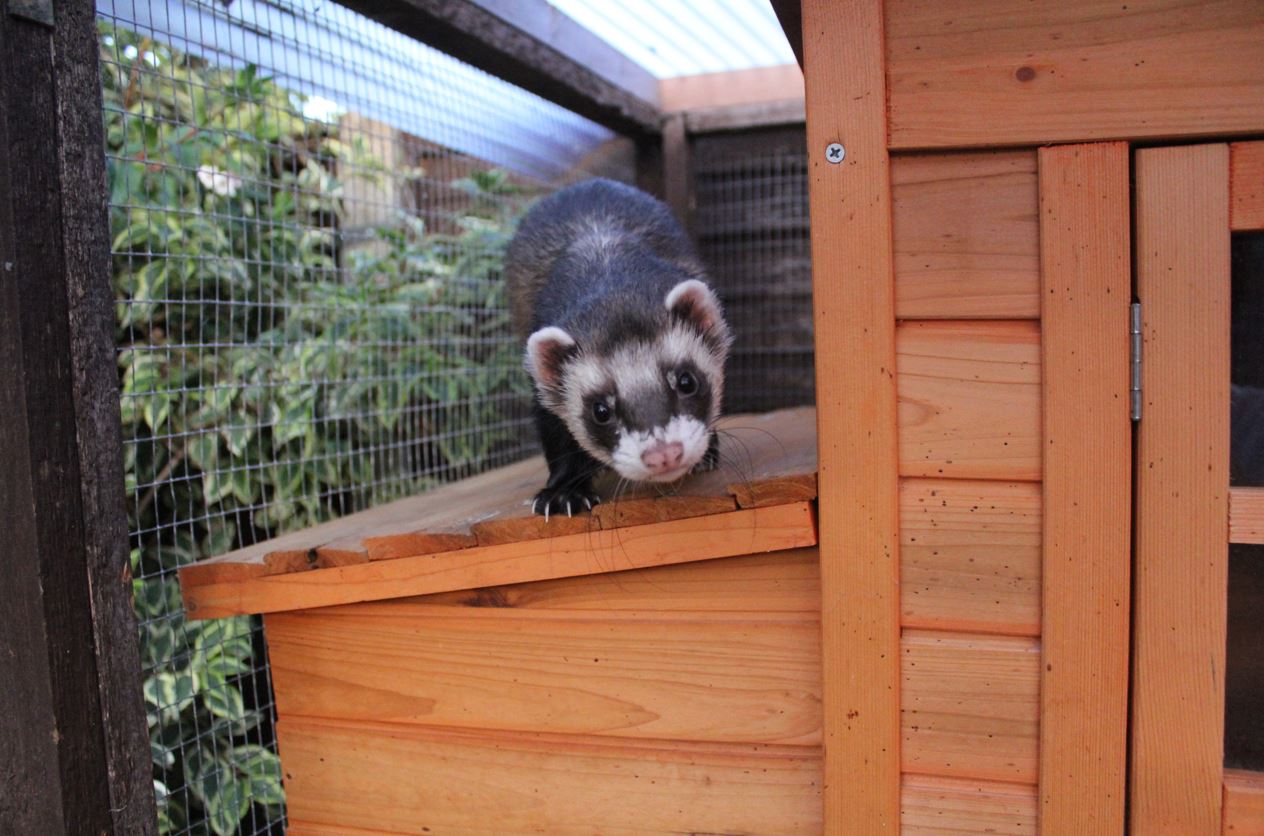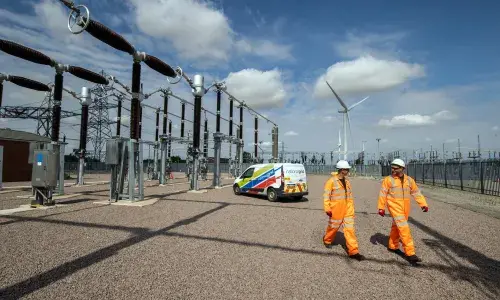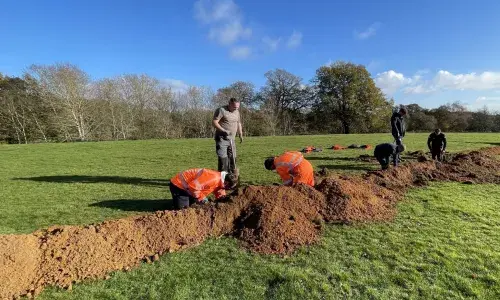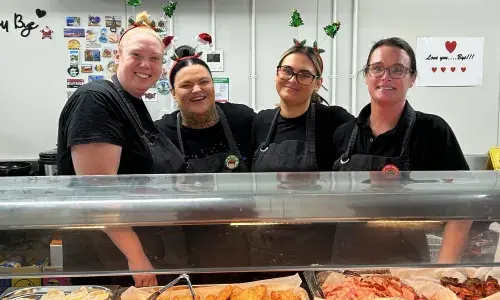
Cat-astrophe averted
- Contractor on National Grid’s Hinkley Connection Project rescues injured polecat
- After months of fostering, the polecat now has a new owner and a new name
In a heart-warming update for the team working on National Grid’s Hinkley Connection Project, a polecat that was found and rescued by National Grid contractor Morrison Energy Services now has a new home and a new name.
Last year, the polecat became trapped overnight in a work area where pylon foundations were being constructed. This left him exposed to the elements and at risk from other predators. Fortunately, the Morrison team discovered the polecat, which was in poor condition and in need of medical attention.
Members of the project team reacted quickly and sought help and guidance from Secret World Wildlife Rescue (SWWR) in Huntspill, who determined that the polecat was domesticated and had likely become lost after having escaped from his home. Staff at the rescue centre were instrumental in helping to find a veterinary clinic to take the lost polecat.
He was transported to Quantock Veterinary Hospital where he received treatment. The veterinary staff provided a safe home for the polecat while the search for its owner was carried out. After extensive searches and no luck finding his owner, the vets approached Tony Vauden, a Secret World volunteer and experienced owner of ferrets and polecats, to see if he would give the polecat a home. Tony took him in and, as well a new home and polecats Diego and Digby to play with, he also has a new name – Hinkley.
A big thank you to the National Grid team for informing us about the poorly polecat and I am delighted our staff and volunteers at Secret World Wildlife Rescue and Quantock Veterinary Hospital were able to nurse Hinkley the polecat back to health and find him a loving home.
Russell Hancock, Safety Health Environment and Quality Manager from National Grid said: “Minimising our environmental impact and supporting wildlife, animals and habitats on and around our infrastructure is a crucial element of the Hinkley Connection Project. We’re incredibly proud of the reactiveness of the team and would like to extend our thanks to the Quantock Veterinary Hospital and Secret World Wildlife Rescue for providing the care that this lost animal desperately needed.”
Dean Jacklin, Safety, Health, Environmental and Quality Advisor at Morrison Energy Services commented: “The quick thinking of the project team helped to save the life of one of the UK’s most unique creatures.”
Pauline Kidner, founder of Secret World Wildlife Rescue said: “A big thank you to the National Grid team for informing us about the poorly polecat and I am delighted our staff and volunteers at Secret World Wildlife Rescue and Quantock Veterinary Hospital were able to nurse Hinkley the polecat back to health and find him a loving home.”
Wild polecats, known for their bandit-like appearance, were once hunted to the brink of extinction and are classified as a protected species in the UK under the Wildlife and Countryside Act 1981, and a Priority Species under the UK Post-2010 Biodiversity Framework. They’re roughly the size of a ferret and can be found in lowland wooded habitats, marshes, riverbanks or dry-stone walls. In 2005, after an absence of many years due to persecution, the return of the wild polecat to Somerset was confirmed.
The team at Morrison Energy Services will be volunteering their time at the Secret World Wildlife Rescue Centre to show their appreciation for the help provided in getting the lost polecat to a safe and warm environment.
For more information on the Hinkley Connection Project and environmental work on the project visit: Hinkley Connection Project Site
Contact for media information only:
Helen Blake
+44 7790 824788


